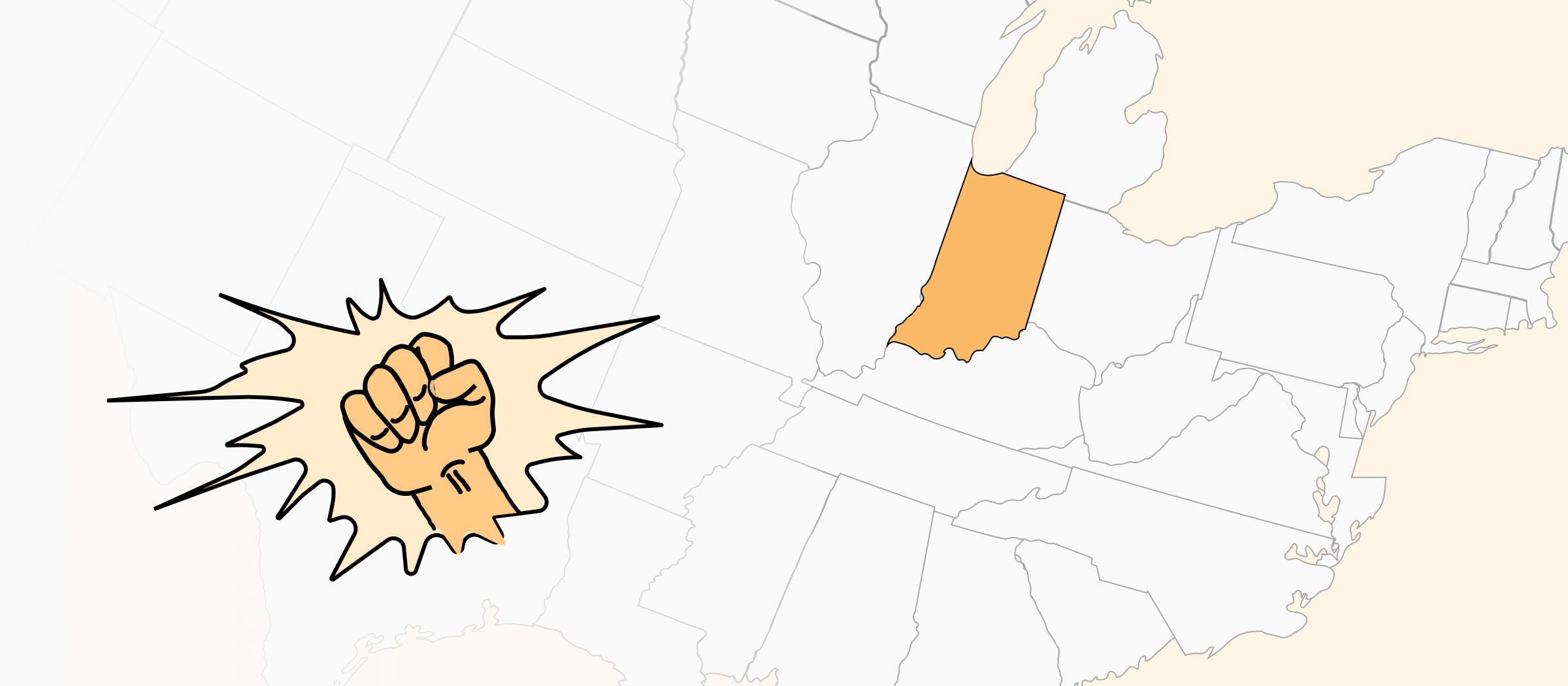| Tenant Protected Actions |
|
| Landlord Retaliatory Actions |
|
| Penalties for Retaliation |
|
When Is It Illegal for Landlords to Retaliate in Indiana?
It’s illegal for Indiana landlords to retaliate with raised rent, reduced services, or threatened eviction or other dispossession outside the rental agreement, against tenants who have taken one of the following protected actions:
- Complaining to the landlord about the landlord’s responsibilities.
- Complaining to the government about health and safety.
- Suing or testifying against the landlord.
- Participating in a tenant organization.
The law allows an exception when the landlord can prove a non-retaliatory, good-faith reason for the alleged retaliatory action. For example, a landlord who raises rent proportionately in response to a large increase in property tax is not retaliating, even if a tenant has recently complained about maintenance.
What Can Tenants Do in Response in Indiana?
If a landlord retaliates in Indiana, the tenant can respond by suing for expenses associated with the retaliation, or suing for an injunction that grants quiet enjoyment of the property. In either case, the tenant can recover court costs and attorney fees.
Sources
- 1 Ind. Code § 32-31-8.5-2 (2022)
-
“As used in this chapter, ‘protected activity’ means any of the following actions taken by a tenant: (1) Complaining to a governmental entity responsible for enforcing an applicable building or housing code about a violation with respect to the rental premises that materially affects health or safety. (2) Complaining to a landlord in writing concerning the landlord’s violation of IC 32-31-5-6 [landlord duties re: possession, access, and essential services] or IC 32-31-8-5 [other landlord obligations]. (3) Bringing an action against the landlord under IC 32-31-6 [emergency possession action] or IC 32-31-8 [landlord obligations]. (4) Organizing or becoming a member of a tenant’s organization. (5) Testifying in a court proceeding or an administrative hearing against the landlord.”
Source Link - 2 Ind. Code § 32-31-8.5-4 (2022)
-
“As used in this chapter, ‘retaliatory act’ means any of the following actions taken by a landlord in response to a tenant’s engaging in a protected activity: (1) Increasing the amount of the tenant’s rent. (2) Decreasing, terminating, or interfering with services provided to the rental premises. (3) Bringing or threatening to bring an action for possession of the rental premises. (4) Bringing or threatening to bring an action to: (A) evict the tenant from the rental premises; or (B) otherwise terminate the tenant’s rental agreement before the expiration of the term of the rental agreement.”
Source Link - 3 Ind. Code § 32-31-8.5-5 (2022)
-
The law permits a landlord to take what would otherwise be a retaliatory action if there’s a legitimate, good-faith reason as defined in the law. The statute is detailed, but includes things like eviction for nonpayment of rent; repossession of the premises for the landlord’s personal use as a residence; a decrease to services that’s executed impartially to all tenants; etc. See Ind. Code § 32-31-8.5-5 (2022)
Source Link - 4 Id. Code § 32-31-8-6(d) & (e) (2022)
-
“(d) If the tenant is the prevailing party in an action under this section, the tenant may obtain any of the following, if appropriate under the circumstances: (1) Recovery of the following: (A) Actual damages and consequential damages. (B) Attorney’s fees and court costs. (2) Injunctive relief. (3) Any other remedy appropriate under the circumstances.
“(e) A landlord’s liability for damages under subsection (d) begins when: (1) the landlord has notice or actual knowledge of noncompliance; and (2) the landlord has: (A) refused to remedy the noncompliance; or (B) failed to remedy the noncompliance within a reasonable amount of time following the notice or actual knowledge; whichever occurs first.”
Source Link

